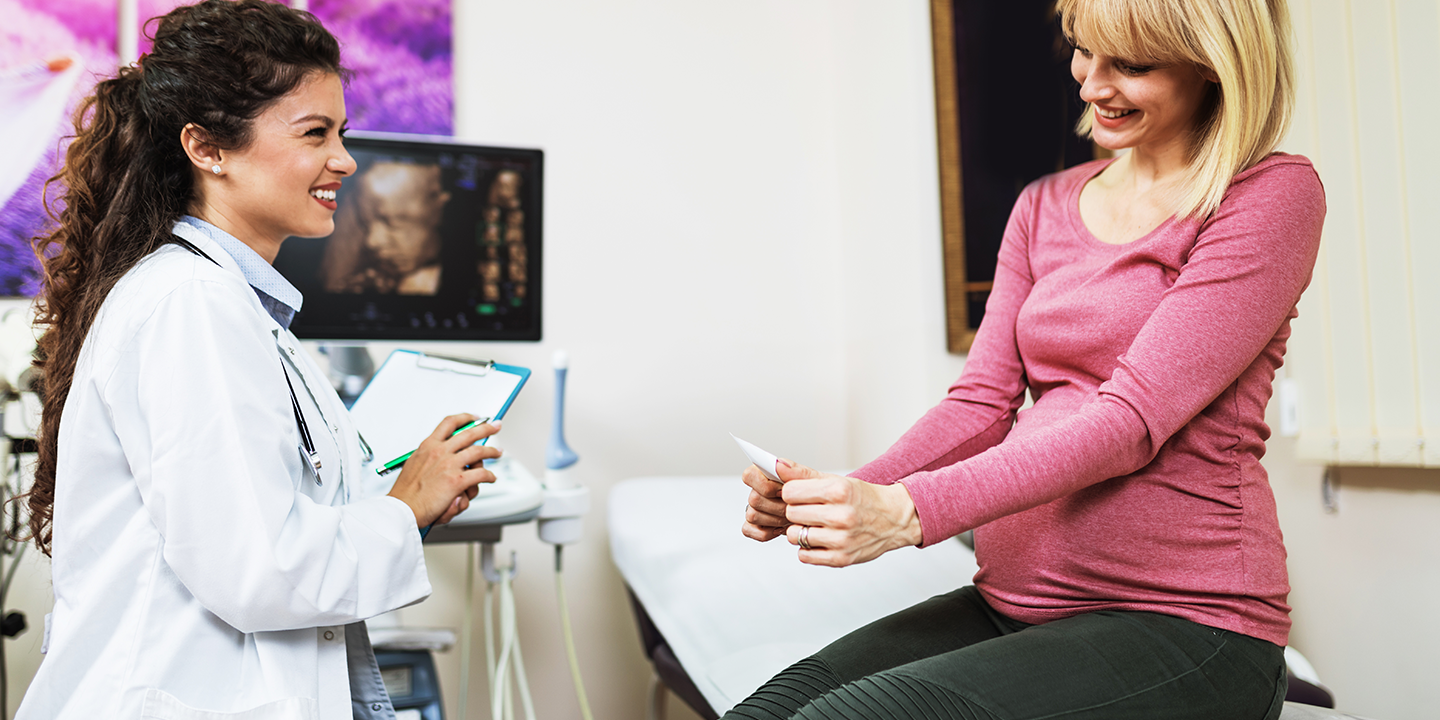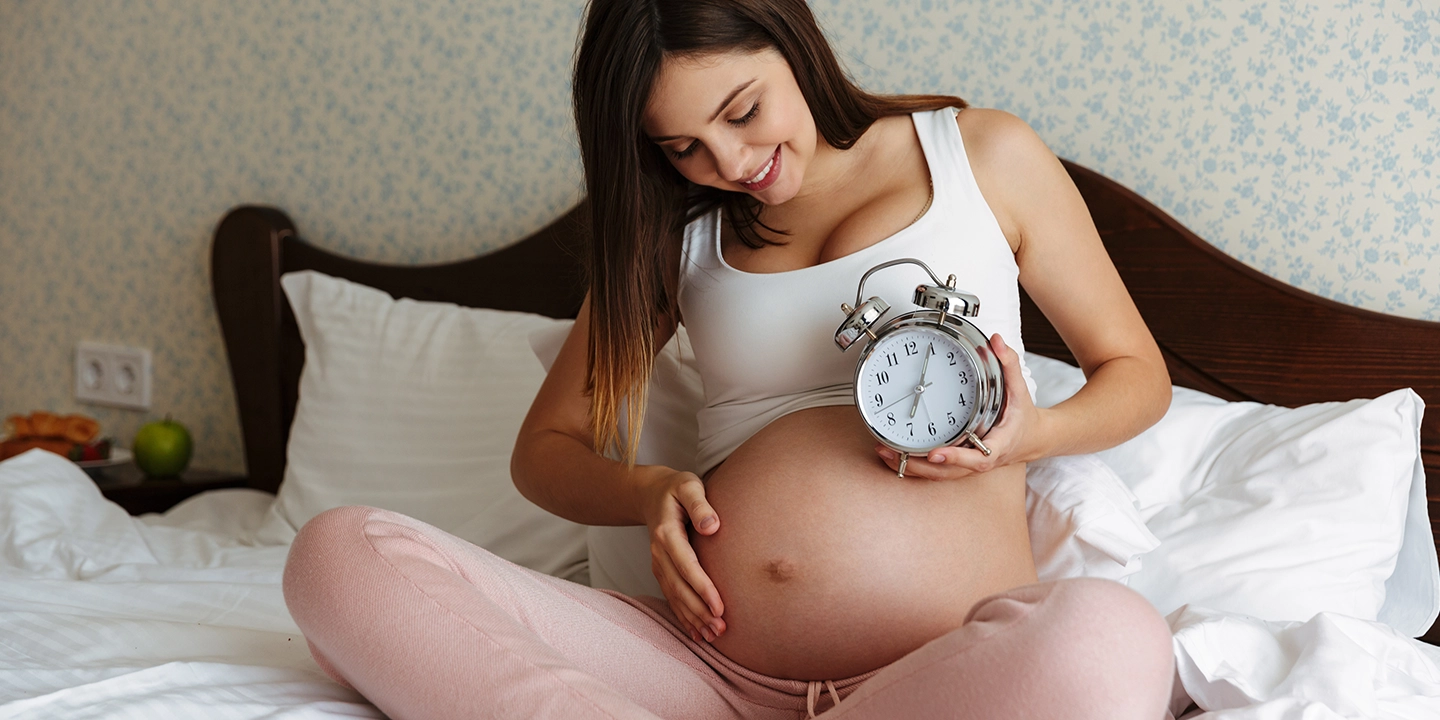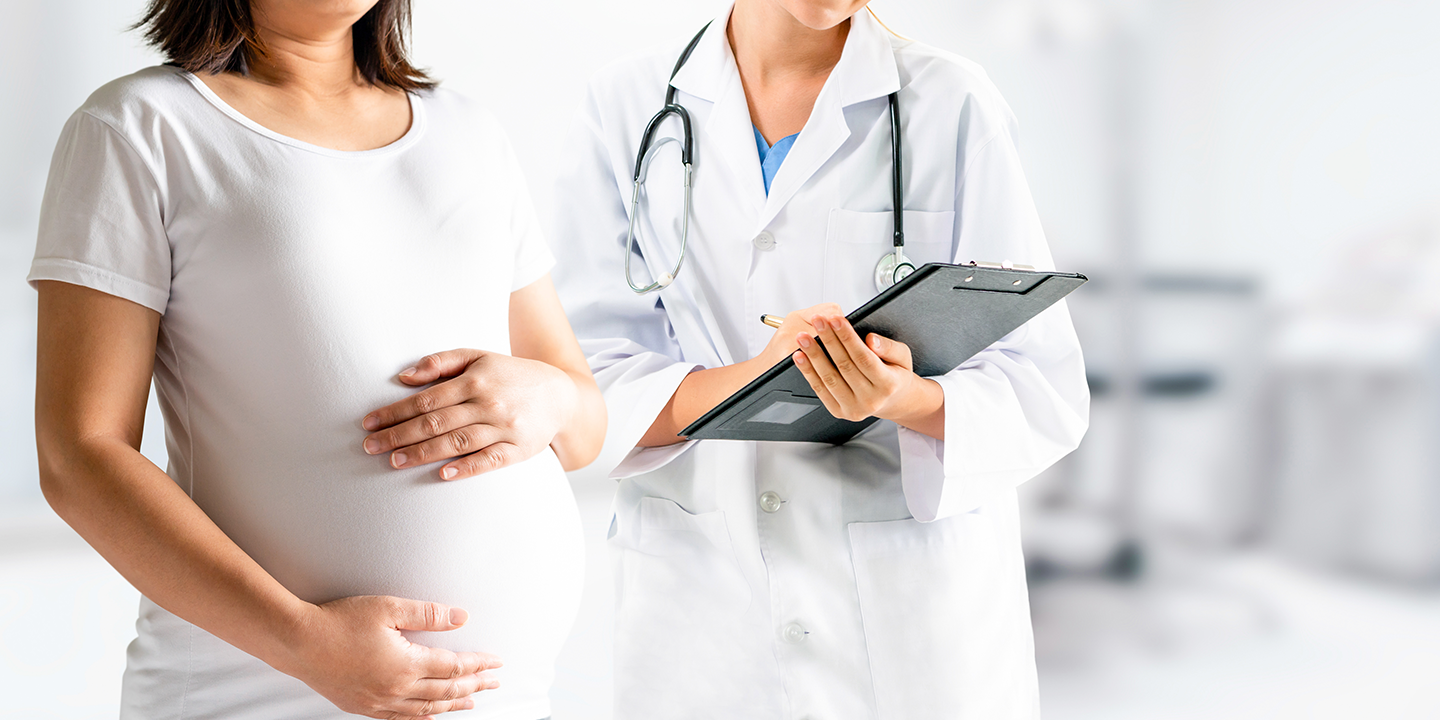
It is a piece of wonderful news to hear as a family that “You’re expecting a child!” Before entering into the realm of parenting responsibilities, take some time to rejoice and be grateful for this blessing.
Your work as a new parent begins right now as there are innumerable things to know about pregnancy. Even though you cannot avoid some difficulties, you can use a few strategies to have a healthy, happy first trimester. The first trimester of your pregnancy is defined as the first twelve weeks of your pregnancy. Getting prenatal care and preserving your health, rest, and mental health are the Do’s of pregnancy throughout the first trimester; Don’t of pregnancy include consuming alcohol, smoking, using drugs, eating harmful foods, and engaging in risky behaviors.
There are several activities you should avoid throughout your first trimester of pregnancy, as well as some things you should do.
Don’t worry, we are here to guide you all about the healthy pregnancy symptoms, along with the do and don’t of pregnancy so that you can continue to enjoy this wondrous ride to motherhood.
Healthy Pregnancy Symptoms
The first trimester of your pregnancy is defined as the first twelve weeks of your pregnancy. It’s an exciting moment, and many moms, particularly first-time mothers, question if their pregnancy is healthy or if the symptoms indicate anything different.
Heartburn. Constipation. Backaches. Yes! These are some of the healthy pregnancy symptoms. Nobody ever said that being pregnant was easy. The good news is that some unpleasant symptoms indicate that your pregnancy is doing well. You may be wondering how to tell if your baby in pregnancy is healthy without utilizing ultrasound. Fortunately, your body will provide you with numerous signals indicating that your pregnancy is healthy and thriving.
Healthy pregnancy symptoms typically include:
- Sore and swollen breasts: Sore and painful breasts occur early in pregnancy due to growing estrogen and progesterone levels, which may make your chest feel heavy and sore, but it is also an indication that your body is responding well to pregnancy.
- Increased vaginal discharge: Many women notice an increase in watery, clear, odorless discharges during pregnancy. A rise in estrogen is to blame. The additional discharge is supposed to help cleanse the vagina and potentially prevent infections from entering the womb, in addition to being a sign of a good pregnancy.
- Morning sickness: Morning sickness is a normal feature of pregnancy. The exact cause of the nausea is unknown, although doctors suspect a sudden surge in the human chorionic gonadotropin hormone (hCG) could be to blame. According to new research, parents who suffer from morning sickness are less likely to miscarry or birth early.
- Exhaustion: Exhaustion is a classic pregnancy symptom that might linger for the entire 40 weeks. While experiencing (you guessed it) tiredness might be taxing, this sluggish sensation is usually a symptom of a good pregnancy.
Related Blog : 11 Tips Which Help You To Enjoy Your Pregnancy
Do and Don’t of Pregnancy
You may become worried after learning you’re pregnant (congrats, mommy-to-be!). What are your options? What can’t you do? Which meals and beverages should you avoid? With so many things to know about pregnancy, it is easy to become overwhelmed. That is why we have compiled this list of do and don’t of pregnancy in the first trimester, so you can make the best decisions for you and your baby during this crucial stage of pregnancy.
Do’s Of Pregnancy
- Do take a multivitamin
Eating a well-balanced, vitamin- and mineral-rich diet is the greatest approach to providing your body with all of the nutritious nutrients it requires to support a growing baby. However, Just a healthy diet alone may not be sufficient during pregnancy.
Prenatal vitamins top the list of do’s of pregnancy, as they include increased levels of key nutrients that pregnant women require in higher concentrations, such as folic acid, calcium, and iron.
These vitamins aid in the correct development of the fetus and aid in the prevention of birth problems. Your doctor may recommend you the appropriate multivitamin or vitamin combinations.
A multivitamin will typically contain DHA, EPA, or both, which are omega-3 fats essential for your baby’s neurological development. However, do not take more than one dose of multivitamins. Some vitamins, in excess, might be detrimental to the newborn.
- Get plenty of rest.
During this 9-month pregnancy anticipation, changing hormone levels, and anxiety, all may make sleep difficult to come by. Specifically, in the third trimester, you’ll need your rest, as pregnancy is exhausting.
If you are fatigued, take a quick nap and schedule naps whenever possible. Set and stick to bedtimes.
Aim for 7-9 hours of sleep per night. Fatigue is a warning sign of your requiring more rest, so try to get as much rest as you can.
- Do exercise
Pregnant women no longer avoid lifting a finger during their pregnancies: We now know that exercise is beneficial to both mother and child.
Regular exercise may help you deal with many of the problems that emerge during pregnancy, such as sleeplessness and muscular soreness, a lot of weight gain, and Mood issues
Continue to exercise if you did before becoming pregnant. Discuss with your doctor any changes you should make to your regimen, especially as you enter your second and third trimesters.
If you didn’t exercise frequently before learning you were pregnant, talk to your doctor about introducing a fitness regimen into your daily routine. They can help you find a program that is both safe and pleasant for you and your growing child.
- Practice yoga daily
You should avoid Bikram or hot yoga when pregnant, but other yoga methods are fine. Look for prenatal or gentle yoga classes for expectant mothers. These classes’ instructors will know which positions to use and which to avoid.
If you weren’t practicing yoga before becoming pregnant, consult your doctor before enrolling in a class. While it is possible to begin, it is advisable to discuss the risks and concerns with your doctor.
- Do get a flu vaccination.
Pregnant women can and should receive a flu vaccine if there are no contraindications stated by the manufacturer. The injection does not contain a live virus and the vaccine won’t give you the flu. If you get influenza while pregnant, your chance of serious side effects is higher than in women of the same age who aren’t pregnant. The immunization will protect both you and your unborn child.
- Do gain weight wisely
The advice to expectant moms to “eat for two” is not a license to eat anything they want. Instead, women must be deliberate about what and how much they eat.
Gaining a lot of weight during pregnancy may do more damage than benefit to your baby.
You just need roughly 100 more calories per day throughout your first trimester to support your growing fetus.
- Do see the dentist.
For decades, people avoided going to the dentist for concern that a mouth cleaning might spread bacteria and create an infection. But we now know that is not the truth.
The American College of Obstetricians and Gynecologists recommends that expecting moms get a routine oral health assessment and regular dental cleanings while pregnant. Inform your dentist about your pregnancy
Related Blog : 11 Best Foods Eat During Pregnancy
- Do consume seafood.
Seafood contains a variety of vitamins and minerals, including heart-healthy omega-3 fatty acids, zinc, and iron. All of these things are critical for both mom and baby. However, raw or undercooked seafood can cause issues.
Seafood may contain hazardous germs and viruses that are destroyed when completely cooked. Pregnant women should also avoid raw seafood and fish with high mercury levels.
Sharks, swordfish, tilefish, and king mackerel are examples of fish with high mercury levels.
Consume a variety of seafood to avoid mineral concentrations from a single type of fish.
- Do keep yourself hydrated.
While hydration is vital for non-pregnant adults as well, it is especially important during the first trimester of pregnancy. Staying hydrated throughout the first few weeks of pregnancy might help you avoid various unpleasant symptoms such as dizziness, kidney stones, constipation, migraines, and even preterm labor.
Doctors advise drinking 8-12 cups of water per day.
If you find it difficult to drink so much plain water, consider sparkling water, juices, soups, herbal teas, and a variety of fruits and vegetables. If you have morning sickness, which is a common symptom in the first trimester, you may vomit and lose liquids. Replace this lost fluid by consuming more water or herbal tea if possible.
- Do have sex
As long as there are no complicating factors, such as placenta previa or another sort of high-risk pregnancy, this one falls under the dos of pregnancy. If you are experiencing discomfort, you may need to experiment with other positions. If you have any concerns regarding the safety of intercourse during your pregnancy, consult your doctor.
Don’t Of Pregnancy
Your and your baby’s bodies are changing rapidly, and following a few easy suggestions or don’t of pregnancy, will help you create a solid foundation for the duration of your pregnancy.
- Do not smoke
Babies born to smoking moms are more likely to have a lower birth weight and are more likely to have learning problems than children born to nonsmoking mothers.
Furthermore, due to physiologic nicotine addiction, children born to smokers are more prone to attempt smoking at a younger age and become regular smokers sooner.
- Do not consume alcohol
Alcohol can have a significant impact on your baby’s development. People who consume alcohol while pregnant may have a baby with fetal alcohol syndrome (FAS).
FAS symptoms include:
- low birth weight
- Learning impairments and behavioral issues
- lagging tendencies in terms of developmental milestones
Even trace amounts of alcohol can be harmful. There does not appear to be any safe level of alcohol consumption during pregnancy and that is why this one is a must of don’t of pregnancy.
If you need assistance quitting drinking while pregnant, consult your doctor as soon as possible. The sooner you seek assistance, the healthier your baby will be.
- Don’t consume raw meat.
Foodborne illnesses such as listeriosis and toxoplasmosis can be contracted from raw or undercooked meat and eggs. Food poisoning is also an option.
These diseases can result in significant, life-threatening infections, severe birth abnormalities, and even miscarriage. Make sure that any eggs or meat you consume while pregnant are well cooked.
- Don’t consume deli meat.
Deli foods, such as hot dogs, sausages, smoked salmon, and other cured meats, can spread foodborne illnesses such as listeriosis and toxoplasmosis.
Sliced meats provide a much larger surface area for bacterial development. Cooking these processed proteins thoroughly minimizes your risk. To help eliminate hazardous bacteria, always wash the produce.
- Don’t consume unpasteurized milk products
Calcium is essential for growing newborns, but mothers must exercise caution when consuming dairy products.
Because raw milk is unpasteurized, it is not recommended for pregnant women. This indicates that it has not been cooked to destroy microorganisms that could make you sick.
Raw milk, in particular, may carry the bacterium Listeria. It has the potential to cause illness, miscarriage, or even death.
- Do not use a hot tub or sauna.
The high-heat atmosphere of hot tubs, Jacuzzis, and saunas, while pleasant, may be too harmful to pregnant women.
Utilizing one of them during your first trimester may quadruple your risk of miscarriage, according to a study. Soaking in hot water raises body temperature, which poses difficulties for the infant, including an increased risk of birth abnormalities.
- Don’t consume a lot of caffeine.
Caffeine can cross the placenta and raise your baby’s heart rate.
According to current studies, women can safely take a cup or two of coffee each day, but avoid a triple-shot latte when pregnant.
- Do not clean your cat’s litter box.
Pet your pet as much as you like and then wash your hands — but another doesn’t of pregnancy includes not cleaning a cat’s litter box. Millions of bacteria and parasites are found in feline feces. Toxoplasma gondii, in particular, is extremely harmful to pregnant women.
If you get HPV, you might not know until you have issues with your pregnancy. It is possible to have a miscarriage or a stillbirth. Babies infected with this parasite may develop major health issues such as convulsions and mental impairments.
Related Blog : 10 Things You Should Avoid After Giving Birth
Conclusion
The first trimester of pregnancy is an exciting period full of concerns about how to care for yourself and your growing baby. In general, things to know about pregnancy involve taking good care of your changing physique. Eat healthy foods, remain active, drink lots of water, and get enough sleep.
You’ll set yourself up for a healthy pregnancy and happy baby if you avoid drinking, smoking, drugs, and dangerous hobbies.
You may have many questions about what you should and should not do while pregnant. You should always consult a doctor to find out what is safe for you and your baby. And for that, you can visit Queen’s Gynecology Delhi, where the award-winning gynecologist and obstetrics offer world-class service to every patient. The internationally trained doctors at Queen’s Gynecology perform all modern-day procedures with proficiency and expertise.
For more than a decade, Queen’s Gynecology has been providing legendary care on the principles of ethics, the latest technology, and humane touch.
Frequently Asked Questions
The first 12 weeks of pregnancy are the most vulnerable for the growing fetus. All of the major organs and body systems are developing at this time. They can be harmed if the fetus is exposed to drugs, infectious agents, radiation, some medications, tobacco, and toxic substances.
During pregnancy, it is usual to feel fatigued, if not exhausted, especially during the first 12 weeks. Hormonal changes during this period may lead to you experiencing fatigue, nausea, and terrible mood swings. The best solution to tackle this is to rest as much as possible.
The majority of miscarriages are caused by genetic defects or other health issues over which we have no control. As a result, there isn’t much you can do to prevent it. The most important thing you can do is stay as healthy as possible before trying to conceive and throughout your pregnancy. Here are some suggestions for remaining healthy when pregnant:
Consume a well-balanced diet.
Exercise on a regular basis.
Avoid alcohol, recreational drugs, and smoking cigarettes.
Reduce your daily caffeine intake to 200 mg or less.
Attend prenatal appointments on a regular basis.























































































































































































